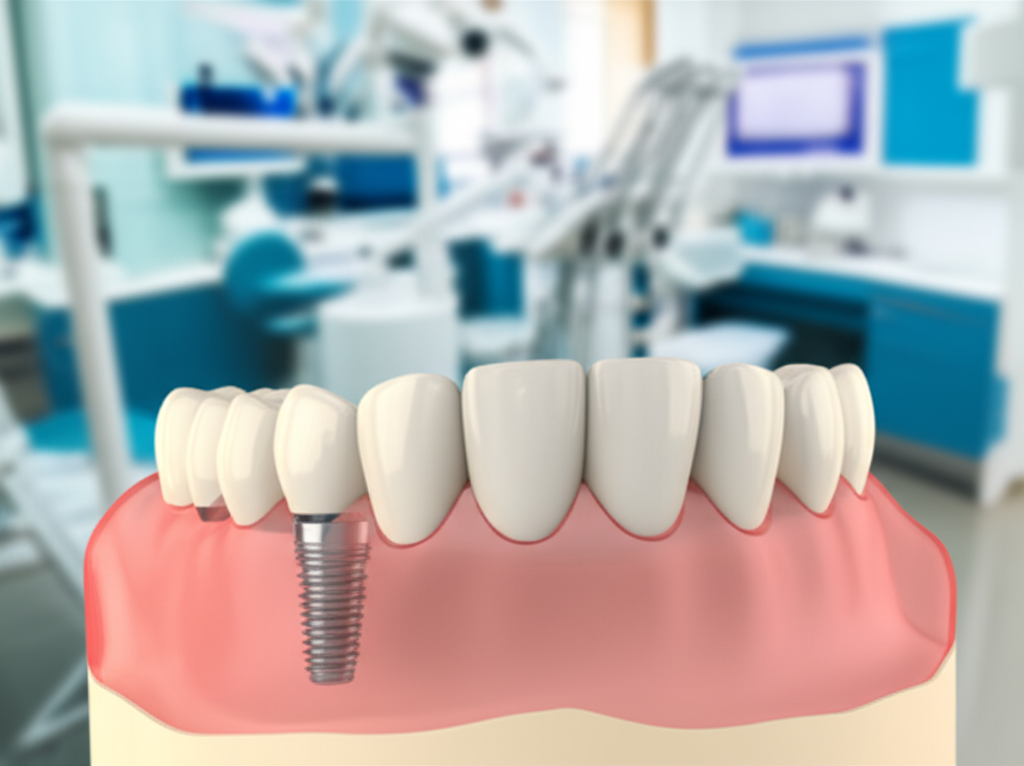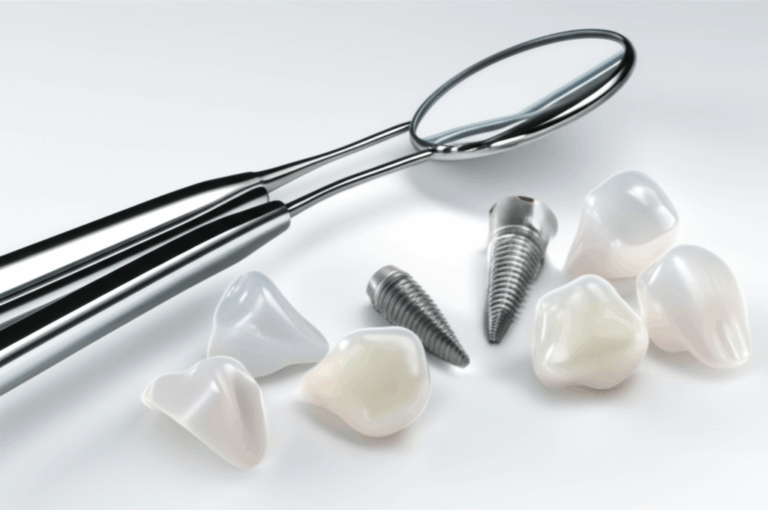
How Much Do Dental Implants Cost in Calgary? My Honest, Detailed Guide
Table of Contents
- Introduction: My Experience Navigating Dental Implant Costs in Calgary
- The Real Cost of Dental Implants in Calgary (Average Ranges)
- What Influences Dental Implant Pricing? (Key Factors Explained)
- What Does a Dental Implant Cost Actually Cover?
- How I Explored Payment and Financing Options in Calgary
- Alternatives to Dental Implants – A Quick Cost Comparison
- How I Chose the Right Dental Implant Professional in Calgary
- Final Thoughts: Is a Dental Implant in Calgary Worth It for You?
Introduction: My Experience Navigating Dental Implant Costs in Calgary
When I first looked into getting dental implants in Calgary, the amount of prices, options, and big numbers made me want to just stop looking. I was worried about paying too much or picking a clinic that did a bad job. So, like maybe you are now, I started looking for real answers. How much do dental implants really cost in Calgary? Why do prices change so much? And most important—are they better than bridges or dentures?
What I found out surprised me. By comparing costs, talking to clinics, and checking all the possible choices, I learned that dental implants aren’t as confusing as you might think… but you really need to be careful so you don’t get a bill that shocks you. In this article, I’ll share everything I learned—from exact price ranges to little-known “hidden” costs, ways to pay, and why your own mouth’s needs will change the price.
Let’s start with the big question—what do you actually pay?
The Real Cost of Dental Implants in Calgary (Average Ranges)
Single Dental Implant
When I first started asking around, the price for a single dental implant with the post, connector, and crown almost made me fall over. Most Calgary clinics told me $3,500 to $6,000 per tooth for everything. That’s for the whole process—but that’s more than most people expect.
For example, one clinic told me:
- Implant post (the “root”): $1,500 – $2,500
- Abutment: $500 – $900
- Crown: $1,000 – $2,000
So yes, it adds up fast.
Multiple Dental Implants
If you need more than one—like two or three teeth together—some places give you a “discounted” price for each (about $3,000 – $5,500 per tooth), but your total still goes up quickly. A two-implant bridge could cost $6,000 to $11,000.
Full Mouth / All-on-4 or All-on-6
For a fixed full arch (where 4 or 6 implants hold a whole row of teeth, like All-on-4), clinics told me $20,000 to $35,000 per row. If you want both top and bottom, it could cost well over $50,000 for a full mouth.
For implant-supported dentures (the kind that snap on and off but are held in place), it’s a bit lower—usually $10,000 – $25,000 per row.
Other Common Costs
- Bone grafting: $500 – $3,000+ (if you need bone added)
- Sinus lift: $1,500 – $3,500+ (may be needed for upper teeth in back)
- Tooth removal: $150 – $450 (before implant)
- Consultation & x-rays/CBCT scans: Free – $250 (changes by clinic)
- Sedation (to help you relax): $300 – $1,500+ (depends on what you pick)
Here’s the thing…
Almost every clinic told me, “These are just guesses—we need to see you for a plan that fits you.” They mean it. You really do need a visit to get a real price, because everyone’s mouth is different.
What Influences Dental Implant Pricing? (Key Factors Explained)
With this big range of prices, you might wonder: why does it change so much for everyone? Here’s what I found out (I asked every question possible):
The Number of Implants Needed
Pretty simple, but important. If you need just one tooth, you’ll pay less. If you need more, it costs more. Some dentists give a slight deal per tooth for a group of implants.
Type of Implant System
Not all implants are the same. Some are made from titanium (the usual, strong kind), but some use zirconia (a white material, good for people who can’t use metals). There are lots of brands too—some are fancier and cost more, but could last longer.
Extra Procedures Needed
This part makes prices jump around:
- Bone Grafting (adding bone, fixing the ridge, or lifting the sinus): If your jaw has lost bone, it might need to be built up to fit the implant.
- Tooth Removal: You might need teeth pulled first, which adds $150 – $450 for each one.
- Gum Work: Sometimes gums need shaping or fixing, which can mean more little surgeries too.
How Complicated Your Case Is
If your jawbone is thick and healthy, it’s easier and cheaper. If you have bone loss or need a front tooth (which needs to look natural), it can be harder and cost more. Special shapes or materials cost more too.
Dentist’s Skill, Where the Clinic Is, and Clinic Extras
Specialists—like oral surgeons, gum specialists, or dentists who do lots of implants—may charge more, but you often get better work and equipment. High-tech things like 3D scans, planning on a computer, and great dental labs can raise the price, but may mean better results.
Sedation and Numbing
Some people are fine with just numbing, others (like me) want medicine to relax or even sleep through it. The more you need, the more you pay.
Burst of Reality
You might see ads for “$999 implants!” If it’s too good to be true, watch out! That price is usually just for putting the metal post in—not the connector, fake tooth, bone work, or anything else. Always ask for a list that shows every cost.
What Does a Dental Implant Cost Actually Cover?
At first, I thought a “dental implant” was a ready-to-use fake tooth. Nope! The real price is actually a few parts all added up. Here’s what to check:
The Three Main Pieces
Other Things That Might Be Included
- First Visit and X-rays: Some clinics give a basic first visit and normal X-ray for free. A special 3D scan (used for planning) usually costs extra.
- After-Surgery Checks: Visits after the surgery, check-ups, and taking out stitches.
- Temporary Tooth: If you don’t want a gap after surgery, a temporary fake tooth might be included (or not—it’s good to ask).
The Hidden Costs
Check for extra costs like:
- Medicine (pain pills, antibiotics)
- Special connectors (sometimes more pricey than plain ones)
- Special crown materials (e.g., porcelain or zirconia)
- Lab work (especially if your dentist uses a really good lab)
If you want the toughest or nicest-looking solution, your bill can go higher. Some digital processes in the lab can also help the fit, but may add to the cost.
How I Explored Payment and Financing Options in Calgary
The big numbers made me nervous. Let’s be real: not many people can pay $6,000 in one go. Here’s what I did (and what many people told me they did too):
Dental Insurance—What Actually Gets Paid For?
Most normal dental insurance in Alberta doesn’t pay for implants themselves. They call it “cosmetic,” so you might be out of luck for most of it. But, I found out that if you need teeth pulled, bone added, or even the final crown, some plans pay for those parts. Always call your insurance and ask specific questions.
Payment Plans & Paying in Chunks
Many Calgary clinics now let you pay over time. This means you put some money down, then pay the rest over 6, 12, or 24 months. Some have no interest (great!) or low interest (check the details). It’s worth asking around and even trying to bargain.
Outside Medical Loans
I found places like Credit Medical or Medicard. These are just loan companies for medical stuff, not only teeth. They usually have okay rates, but always read the rules about what you’ll really pay in the end.
Personal Savings or a Bank Loan
If you have money saved, a line of credit, or even special accounts, those work too. Some Canadians use RRSP money, but tax rules apply. It’s good to look at all the ways before making a choice.
The Bottom Line
Talk with the money person at your dental office—they do this every day, and sometimes they know about grants or deals, even from local groups or the government for low-income patients.
Alternatives to Dental Implants – A Quick Cost Comparison
Implants sound great, but are they really that much better than old-school fixes? This is what I found:
Dental Bridges
- Summary: A “bridge” uses the teeth next to the gap to hold a fake tooth in between. It’s less work and faster.
- Cost in Calgary: Usually $3,000 – $5,000 per bridge (depends on size and material)
- Cons: You have to drill down healthy teeth; bridges usually last 5-15 years (not as long as an implant).
Partial/Full Dentures
- Removable partial dentures: $1,000 – $4,000
- Full removable dentures: $1,000 – $6,000 (per row)
- Implant-supported dentures: $10,000 – $25,000 (these snap in, but don’t stay in all the time)
Dentures are cheaper at the start, but they don’t stop bone shrinking and may not feel as “real” or steady.
Why Implants Are Wanted
After seeing my parents use sticky denture glue, I totally got why people like implants:
- They feel and work like real teeth
- You can eat what you want
- They last way longer (if you take care of them)
Still, if you’re really tight on money or can’t have surgery, dentures or bridges might work for you.
How I Chose the Right Dental Implant Professional in Calgary
This step was pretty scary. Calgary has lots of clinics, all with Google reviews, shiny websites, and “deals.” Here’s how I picked my dentist:
Look at Their Training
I wanted a dentist who was:
- An Oral and Maxillofacial Surgeon,
- A Periodontist (gum doctor),
- Or a dentist with lots of experience with implants.
Extra points if they work with a top implant dental laboratory—the places I saw with these labs had better-looking results.
The First Visit Counts
Most good places will give you a free or cheap first visit. When I went, I asked:
- How many times have you done this?
- Can you give me a list of every cost (post, surgery, crown, sedation, checkups)?
- How long will it take?
- What kinds of materials and brands do you use?
- Can I see real before-and-after pictures?
- What happens if something breaks? Is there a plan to fix it?
Look at Reviews… and Trust Yourself
Real people’s reviews are super helpful. Look for patterns: Is the staff nice? Do the doctors care after surgery? But, if they seem pushy or unclear, leave. Go with your gut.
Pro-Tip
If you have a medical issue or bad bone loss, make sure your clinic uses special scans (like 3D x-rays)—these can make it safer and easier.
Final Thoughts: Is a Dental Implant in Calgary Worth It for You?
So, was it worth it for me? Yes. I learned that even though the start-up cost is big, the long-run value, looks, and chewing power just can’t be beat by anything else. My implant feels like a real tooth—even years later—and I’ve never worried it would pop out at dinner.
But, I took my time. I found a dentist I liked, checked every part of my bill, called my insurance to get the real story, and looked at other options. If you’re at this point, my advice is to start with a first visit—get a cost made just for you. Ask questions until you feel good. Sometimes, finding a dentist you trust matters as much as the price.
Whatever you do, spend on your mouth wisely. Your smile, chewing, and confidence will thank you forever.
If you want to learn more about how missing teeth can affect your health, it’s worth looking up more info before you decide.
If you have questions about materials or want to know more about special lab options (like zirconia or digital ways of making implants), ask your dentist about the labs they use. Some digital ways in a digital dental lab can help with fit and speed. Above all, think about what you need and what makes you comfortable.
Good luck with your dental journey in Calgary! If I could do it, you can too.








